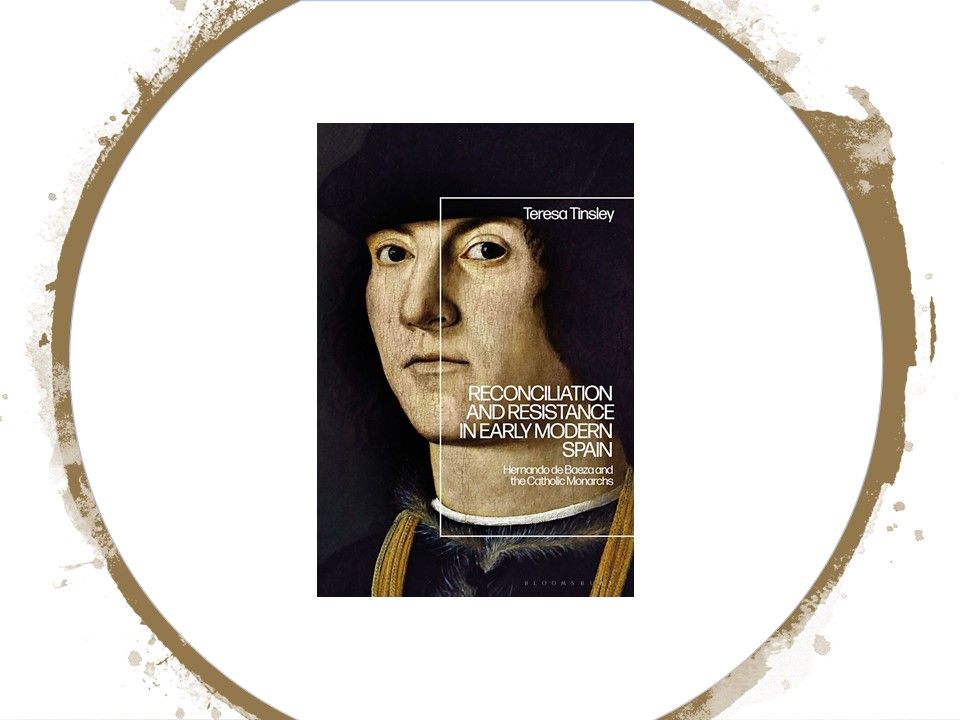Teresa TINSLEY
Reconciliation and Resistance in Early Modern Spain. Hernando de Baeza and the Catholic Monarchs
Bloomsbury Academic, 2022, Hardback, 1st edition, 232 pp.
ISBN: 9781350232778
Este libro ofrece una perspectiva original sobre el surgimiento de la España moderna temprana de la Iberia multirreligiosa. Utiliza la agitada carrera de Hernando de Baeza -intérprete, intermediario y autor situado en la intersección de las llamadas «tres culturas» de la Iberia medieval (judaísmo, islamismo y cristianismo)- como hilo conductor para conectar los conflictos, controversias y preocupaciones de una época en la que cristianizar el mundo entero parecía un sueño alcanzable.
La autora se basa en una gran cantidad de pruebas de archivo, junto con las memorias del propio Baeza sobre la caída de la Granada musulmana (traducidas aquí por primera vez), para demostrar la resistencia generalizada al cristianismo autoritario y excluyente que llegaría a asociarse con España, la Inquisición y los Reyes Católicos de la época. En el proceso, se proporciona un relato alternativo y matizado de las tensiones, los compromisos y los intereses contrapuestos que subyacen a la aparición de España como potencia mundial.
En inglés:
This book offers an original perspective on the emergence of early modern Spain from multi-faith Iberia. It uses the eventful career of Hernando de Baeza – an interpreter, intermediary, and author positioned at the intersection of the so-called ‘three cultures’ of medieval Iberia (Judaism, Islam, and Christianity) – as a thread to connect the conflicts, controversies, and preoccupations of an age in which Christianising the whole world seemed an attainable dream.
Teresa Tinsley draws on a wealth of extensive archival evidence, together with Baeza’s own memoir on the downfall of Muslim Granada (translated here for the first time), to demonstrate the widespread resistance to the authoritarian and exclusionary Christianity which would come to be associated with Spain, the Inquisition, and the Catholic Monarchs of the period. In the process, Tinsley provides a nuanced alternative account of the tensions, compromises and competing interests which underlay Spain’s emergence as a world power.
Table of Contents
- Introduction: An Alternative Eye on the Reign of the Catholic Monarchs
- Cordoba, the Frontier, and the Inquisition, 1450-1487
- Granada, 1488-1492
- Learning and Culture among the Andalusian Élite – 1492-1510
- The Spanish in Italy
- Reconciliation and Resistance: A Society in Transition
- A Dissident Representation of the Conquest of Granada
Conclusion
Appendix: Hernando de Baeza’s Memoir
Bibliography
Index

